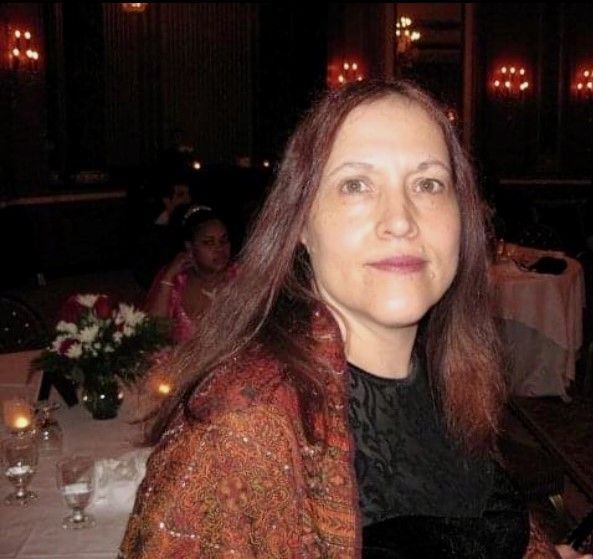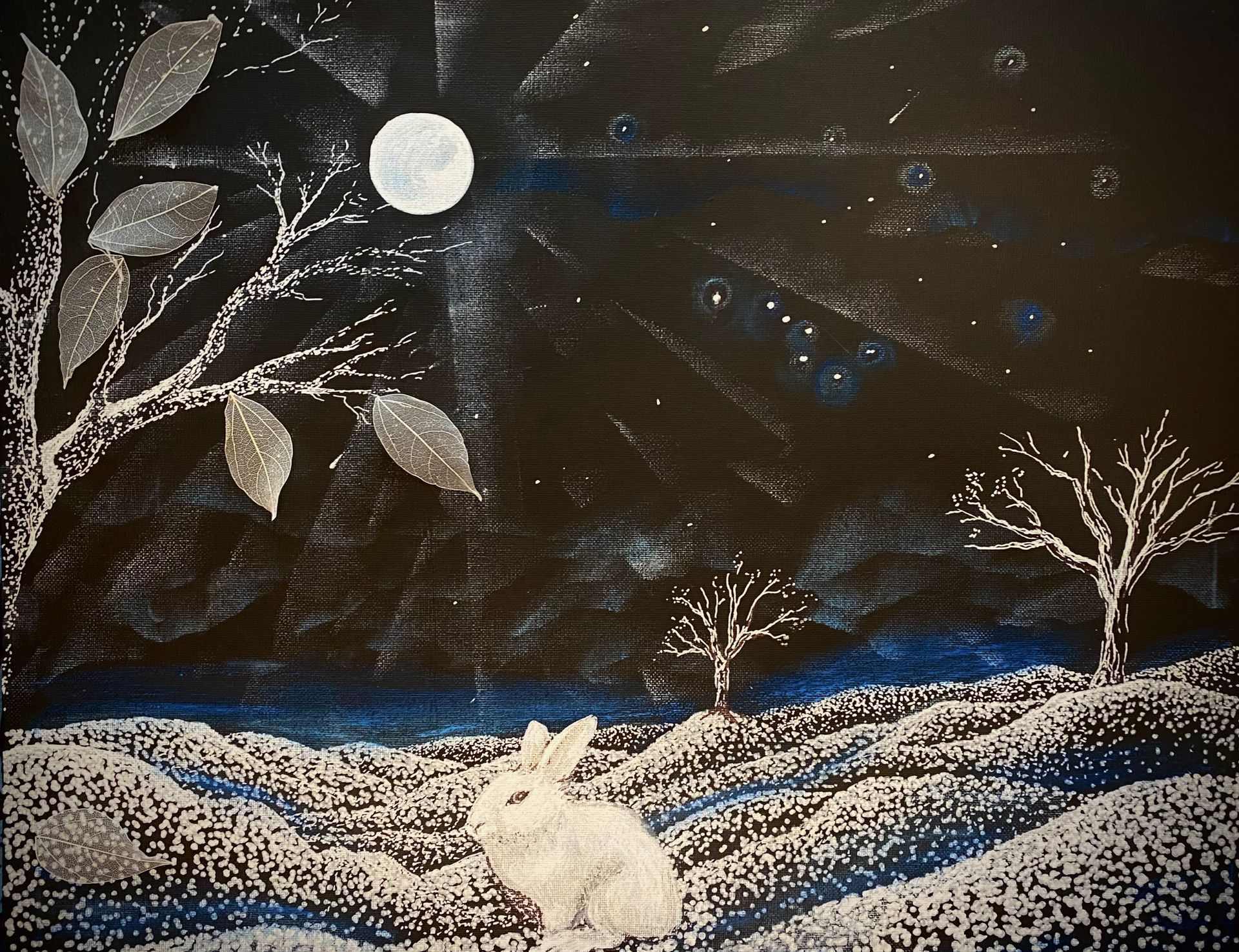Thursday's Columns
April 25, 2024
A Westphalia Guest Column
by Susan Mullen

Susan
Susan Mullen is an associate of the international Westphalian Cercle of writers, artists, armchair philosophers and regular people with a story to tell. Born and raised in a stable middle-class neighborhood in suburban Chicago, she’s a graduate of the Art Institute of Chicago and taught art and special education in the Chicago Public Schools for 34 years. She met her husband in college, a political activist who remained one until the day he died, suddenly and without warning, in 2018. She has three grown sons in the Chicago area and she has her art and friends and recently has been writing more, including this column for the Westphalia Periodic News. She says she decided to pursue art when she was eight years old just to be different than her twin sister, who had other interests.

Untitled acrylic and oil on canvas, Susan Mullen, 2023.
Always
As a young child of six or seven I was keenly aware of two things.
Though I was eager to grow up, I mourned the passing days; I knew they would never return. I felt in my small bones that my mother -- standing with spatula in hand, flipping pancakes while singing softly to herself, but loud enough so we could hear: “I’m in love with you always…” -- would not always be there. I wished sometimes, even as an impatient child, that I could grab hold of the hem of time and slow it way down.
My other strong awareness was that there were so many people with so many different lives and that I knew so few of them. Those I knew I did not know deep down. Did they think and feel like I did? Was there a voice in their thoughts that narrated their life? Could they possibly be as happy or sad as I was? What are the stories of the others we share our time with, the stories of the spider and the toad?
When the lights were turned off for bedtime, except for the light in the hallway that served as our night light; when my twin sister’s chatter faded into the slow and heavy breath of sleep, I crept into the hallway at the top of the stairs and sat under the hall light made of stars. There I imagined the lives of my classmates. Was Michael tucked in or did his parents let him stay up a bit longer, sitting cross-legged in his P.Js in front of the TV? I could see him sitting on a gold shag rug wearing his pajamas with a pattern of rockets and robots; his parents sitting on the sofa behind him drinking their nightcap; his mother puffing a cigarette while all of them watched Johnny Carson. It felt real though I’d never been inside Michael’s house or seen his parents. Before slipping back to bed I’d look out my bedroom window at the fresh snow and notice a rabbit sitting motionless, in the glowing moonlight.
I made a practice of choosing different classmates and trying to see what their lives were like at that very moment. I knew I could not see into their lives, but I so wanted to. I knew also that I could not slow down time. The best I could do was to remember to pay attention to the fleeting moment, to feel the awe in the ordinary, to notice the twitch of a bunny’s ear. This I often forgot and still forget to do.
The cosmos itself, all of creation, star clusters, pulsars, quasars, galaxies, and moonlight are all spinning wildly like the vortex of water that slips down the drain.
I wish to slow it down and take a deeper look.
This is why I tell stories, why I paint images, why I write songs and sing softly but loud enough for someone nearby to hear:
“I’m in love with you always. With a love that’s true always.”
